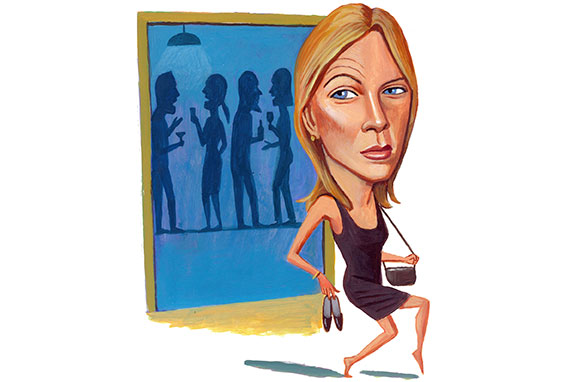|
In response to my last article on how beliefs and world-views affect our desires for the world we try to create, one reader wondered if the section on euthanasia and assisted suicide should apply to all people, even those who decided to end their life “on whim” with no medical reasons for doing so. My answer is yes. Here is what I wrote in the previous article on this subject. Euthanasia/Assisted suicide. Being liberal entails giving people control over their own bodies. Neither of these should be prevented in the case of a person who willingly wants to end their own life. The reason for wanting to do so is irrelevant. The choice to live or die should be seen as the preeminent liberal issue. I see this decision as similar to whether one wants to leave a party that is no longer interesting or enjoyable. If one finds themselves in the middle of a party and one wishes to stay, no problem. If one wishes to leave, no one else has the right to prevent you from so doing.
Of course, the people at the party may have less fun without you and they may miss your presence at the party, but that is not reason enough to force you, against your will, to remain. You do not owe them your presence, nor do you owe them your suffering for their benefit. If it is really important to the members of the party that you stay, then perhaps they should discuss with you what it is about the party that isn’t satisfying and what they can do to make it better and worthwhile to you. If the party does then change to your satisfaction, you will no longer have any desire to leave. This analogy may seem flippant, but I assure you it is not. Remember, I do not believe in any metaphysical reality beyond this material world. So if one chooses to end their life, they simply no longer exist. There is no regret, pain, suffering, or other negative qualities. Once you have checked out, you are not “missing” anything because there is no consciousness to do the missing. So the real issue is the people that are left behind who did not choose to end their life. The people who chose to remain at the “party”. They may indeed suffer as a result of your ending your life, just as the people who remain at the party may indeed suffer at your leaving. However, that is not reason enough to be forced to stay alive. It is reason enough to do all we can to make life worth living for all and to make all individuals experience the most well-being possible. This perspective actually forces us to consider how we care for others to a greater extent than the societal norm of suffering through life even when we don’t enjoy it. If we genuinely care and desire others to be happy and stick around, then just as with the party where we make it as attractive as possible for those we wish to stay, we will constantly examine the relationships we have with others. A person who ends their life on a whim with no medical reason is, to my mind, a reflection of the social world they live in. It is a strong rebuke of the circumstances they find themselves in and a clear statement that they were not having their needs met by those around them. Humans have a wonderful capacity to experience the sublime because of the social interactions they have. Love, joy, laughter, kindness, care, touch, shared experience. These things make the party worth attending. Each day is a chance to plan, create, and attend that party. When the option of non-existence is available, it is not enough to live a few good days or years and then quietly suffer until death. Each day must have something to look forward to, something worth living for. Ensuring the value of existence ought to be seen as a mutual and interdependent responsibility of the living, our greatest duty to each other. Failing to do so, it is perfectly rational to opt out. It is time we all accept this.
0 Comments
Leave a Reply. |
Archives
November 2017
|

 RSS Feed
RSS Feed